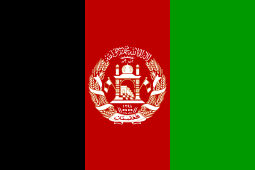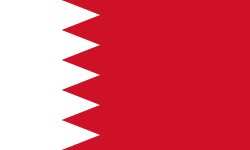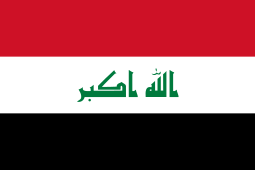Bank Melli Iran
 | |
Native name | Persian: بانک ملی ایران |
|---|---|
| State bank | |
| Founded | 1927 |
| Headquarters | Tehran, Iran |
Key people | MohammadReza Hosseinzadeh (Chairman) |
| Revenue | US$72 billion (2011)[1] |
Number of employees | 53,570 [2] |
| Website | www.bmi.ir |
Bank Melli Iran (BMI, Persian: بانک ملی ایران, lit. National Bank of Iran) is the first national Iranian bank. The bank was established in 1927 by the order of the Iranian Majlis (the Iranian Parliament) and since then has consistently been one of the most influential Iranian banks.
In 1931 the Iranian Majlis authorized the bank to print and distribute the Iranian currency rial. BMI acted as the central bank of Iran until Bank Markazi was established in 1960, after which all of its central banking responsibilities were transferred to the new central bank. Since 1933, BMI has grown to become a large retail bank with several domestic and international branches. BMI opened its first foreign branch in Hamburg, Germany, in 1965.[3] BMI is now the largest commercial retail bank in Iran and in the Middle East with over 3,300 branches and 43,000 employees.[4] Bank Melli Iran is owned and operated by the government of Iran.
Islamic banking
All banks in Iran must follow the banking principles and practices described in the Islamic Banking (Sharia) law of Iran passed in 1983 by the Islamic Majlis of Iran.[5] According to this law, banks can only engage in interest-free Islamic transactions (interest is considered as usury or riba and is forbidden by Islam and its holy book the Quran). The permitted commercial transactions involve exchange of goods and services in return for a share of the assumed profit. All such transactions are performed through Islamic contracts, such as mozarebe, foroush aghsati, joale, salaf, and gharzol-hassane. Details of these contracts and related practices are contained in the Iranian Interest-Free banking law and its guidelines.
Financial numbers and statistics

As of June 16, 2008 (1 USD is approximately 9,313 Iranian rial (Rls)):[6]
- Total assets = Rls 360,517 billion
- Capitalization = Rls 36,487 billion
- Net income after tax = Rls 772 billion
- Total loans = Rls 163,595 billion
- Number of branches = 3,300
- Number of employees = 43,000
- Bank Melli Iran (BMI) has offered close to 30 percent of all credits to economic, production, industrial and services sectors.[4]
- Online banking services offered by Bank Melli have registered a 370-percent growth in 2008.[7]
Current CEO and directors
- Mohammad Reza Hosseinzadeh (Chairman)
- Gholamreza Panahi
- Seyed Valiollah Fatemi Ardakani
- Barat Karimi
Significant buildings
- Ferdowsi Building — Ferdowsi Avenue, Tehran
Offices
Bank Melli Iran has 18 international branches and services in 11 countries:
 Afghanistan (Kabul)
Afghanistan (Kabul) Azerbaijan (Baku)
Azerbaijan (Baku) Bahrain (Manama)
Bahrain (Manama) France (Paris)
France (Paris) Germany (Hamburg)
Germany (Hamburg) Hong Kong (Hong Kong)
Hong Kong (Hong Kong) Iraq (Baghdad & Basra)
Iraq (Baghdad & Basra) Oman (Muscat)
Oman (Muscat) Russia (Moscow)
Russia (Moscow) United Arab Emirates (Abu Dhabi - 4 branches, Dubai - 4 branches and Sharjah)
United Arab Emirates (Abu Dhabi - 4 branches, Dubai - 4 branches and Sharjah) United Kingdom (London)
United Kingdom (London)
Terrorist bombing
On January 26, 1981, a bomb exploded outside the San Francisco offices of Bank Melli Iran. According to the National Memorial Institute for the Prevention of Terrorism, a bomb exploded at BMI branch in San Francisco, shattering windows and damaging the wall of the building where the explosive was planted. No injuries were reported and no arrests were made.
Civil lawsuit
Following the September 1997 suicide bombing in Jerusalem, five American students who had been wounded were awarded $251 million in compensatory and punitive damages against the government of Iran and the Iranian Revolutionary Guard Corps by Judge Ricardo M. Urbina, under the Flatow Amendment of the Foreign Sovereign Immunities Act, in accordance with Section 201a of the Terrorism Risk Insurance Act of 2002, which states that "in every case in which a person has obtained a judgment against a terrorist party on a claim based upon an act of terrorism ... the blocked assets of that terrorist party ... shall be subject to execution". Since most Iranian assets in the United States had been withdrawn after the embassy hostage crisis, the only substantial monetary asset left was approximately $150,000 in the Bank Melli's account in the Bank of New York. Before turning over the funds to the five students, however, the Bank of New York sued for a legal decision regarding its responsibilities in the case. The United States Department of Justice, speaking as amicus curiae in support of Bank Melli, advised that the bank had no responsibility for turning the funds over to the students; in March, 2006, Judge Denise Cole ruled against them, and was upheld by the Second Circuit Court in April, 2007. Bank Melli then withdrew the funds from Bank of New York.[8]
United States sanctions
On 25 October 2007, the United States imposed unilateral sanctions against Iran. These sanctions include new measures to reduce Iran’s ability to conduct financial transactions between the state-owned banks of Iran and United States citizens or private organisations.[9] Bank Melli was included in these sanctions, on the grounds that, besides its other customers, Bank Melli provides financial services to Iran’s nuclear and ballistic missile programmes.[9] A fact sheet released by the US Treasury Department also asserts that between 2002 and 2006 Bank Melli sent at least $100 million to Hamas, Palestinian Islamic Jihad, Hezbollah and other groups, via the Quds Force, a branch of the Iranian Revolutionary Guard.[8]
In a statement published on its web site, BMI refutes the US allegations and categorically denies that it has ever been involved in any "deceptive banking practices".[10]
European Union sanctions
On 16 June 2008, the European Union imposed further unilateral sanctions against Iran. These sanctions will include the European Union freezing the assets of Bank Melli, in response to Tehran's refusal to suspend its uranium enrichment program.[11]
See also
External links
- Bank Meli Web site (Persian)
- Bank Melli Web site (English)
- Central Bank of Iran
- State owned banks of Iran
- The Banker, "The start of an economic renaissance", 2006, available to registered users and subscribers
- Reuters - Iran sanctions
- AFP - Iran to shake up interest rates
References
- ↑ "Archived copy" (PDF). Archived from the original (PDF) on 2013-03-09. Retrieved 2012-02-21.
- ↑ Top 100 Iranian Companies Archived March 9, 2013, at the Wayback Machine.
- ↑ "Bank Melli Iran - History". Bank Melli.
- 1 2 "Archived copy". Archived from the original on 2008-12-13. Retrieved 2016-02-19.
- ↑ "Iran's interest-free banking law". Central Bank of Iran.
- ↑ "BMI financial statements as of March 20, 2006". Bank Melli Iran.
- ↑ "Archived copy". Archived from the original on 2009-01-29. Retrieved 2008-12-14.
- 1 2 U.S. Helps Iranian Bank Withdraw, Then Seeks To Freeze Funds, Josh Gerstein, The New York Sun, November 9, 2007
- 1 2 US slaps sanctions on leading Iranian state-owned banks Agence France-Presse (25 October 2007).
- ↑ BMI's announcement on US sanctions Bank Melli Iran.
- ↑ BBC (16 June 2008).
